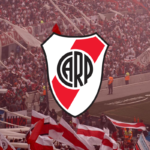


Lunfardo, the slang of Argentina is a point of pride for many Argentines. When I first arrived in Argentina, I thought I was prepared and knew a passable amount of Spanish. Within the first 30 minutes of being in the country I quickly learned that it was going to take some time to grasp the accent, let alone understand the unique idioms and slang.
I can still feel the blood draining from my face when I tried chatting with the taxi driver from the airport when I fist arrived. I had hoped to spark a conversation with the young hipster cabbie and perhaps impress upon him that I was no typical minimal Spanish speaking tourist. The cab driver’s response was lost in translation instantly. Not only did he appear to lecture me with a very opinionated monologue, but he used terms like vos queres, boludo, and gamba. I smiled and nodded, trying to stall for as long as I could. “What the hell did he just say to me?” I thought to myself. Surely I’m just jet-lagged and he’s talking way too fast with a weird accent were my still optimistic justifications. But I soon found out that those excuses were simply not the case.
If you’re simply looking for common lunfardo phrases and expressions from here see our Argentina: Helpful phrases in Spanish parts 1-3
Argentine Spanish is different. In fact, it is almost in a world of its own. Beyond the intense, initial effort of trying to learn general Spanish spoken here, the especially difficult part in Argentina is feeling out the lunfardo and applying it socially. It is part of your Spanish speaking identity when communicating. As you grow up in your own country, speaking your native language, you learn what slang words mean, as well as who, when and how to use them. Watching television, movies and interacting daily, shapes your style and use of these words. When and with whom are the appropriate times to use slang and what image you are painting of yourself to others.
Let’s apply some fun retro TV show and movie examples to help exaggerate and visualize these personas. Each created character had a particular set of slang that the writers would assign to them based upon their character’s personality. You are essentially performing the same act in Spanish when you begin to select lunfardo in your daily Spanish speaking exchanges. Each character followed the traditional role and used the slang set of a categorized type. You will casually be doing the same thing when you begin using lunfardo.
The Lunfardo words below will be associated with the categorizations of stereotypical personas and the types of Argentine slang they would likely use:
Jessica Spano from “Saved by the Bell”, Lisa Simpson from “The Simpsons”
Progressive, politically correct and environmentally aware. Opinionated behavior continually causes a stir with the older generations and those that have not caught up with the times
Lunfardo descriptive word:Chica progre or to be quite politically incorrect and insulting Torta or tortillera (crude references to lesbian, feminazi)
In Argentina the Feminista character would likely make casual use of the term “compañeras/os” to friends, waiters, people she interacts with (a reference to Peronists and perhaps an exaggerated sense of equal treatment for all depending on your political views). “Amigues” and liberal use of the neutralized pronouns like “lxs”, “ellxs”, etc are a given. Machirulo (a machista type person or supporter of a patriarchy) would be their go to insult as well as dubbing behind the times men as “Raul” or “Jorge” and women as “Mabel” (similar to the way millennials dub “boomers”).
Cher Horowitz from “Clueless”
Wealthy, fashionable and at times disconnected to the real world due to her rich lifestyle.
Lunfardo descriptive word: Cheta, Desclasada (rich, snobby female)
The Argentine scripted version of a cheta would most definitely mix in various and seemingly random English words and phrases into her day to day Spanish. The chetas and chetos of Argentina tend to have a bit of an accent of their own, just as the rich, upper class tend to have in every country. In Argentina it sounds like…this. Lunch or dinner are una comida, brunchear is now a Spanglish verb and the hired help for cleaning and what not is referred to as the outdated term mucama.
Biff Tannen from “Back to the Future”, Fred ‘The Ogre’ Palowakski from “Revenge of the Nerds”
Jocks, meatheads, the gym rat type of guy.
Lunfardo descriptive word: Patovica or Rugbier (Club bouncer or Rugby player)
The stereotypical jock in Argentina would likely start and end most sentences with the popular Argentine word boludo. The Rugbier is definitely upper class and bordering cheto. References to his mother would be a general mamá to all with no “my” (mi mamá).
Milhouse Van Houten from “The Simpsons”, Hermione Granger from “Harry Potter”
High water pants, lame attempts at jokes all make a perfect receipt for a gooney geek.
Lunfardo descriptive word: Traga or Ñoño (Nerd, Dork)
Tough to say what an Argentine stereotypical nerd would say, but I would venture a guess at an overuse of Argentine reverse slang or any outdated, non-classic lunfardo. Words that people may use here and there, but an overzealous use nowadays would indeed be dorky. Macanudo (cool)! They would most certainly be kissing up to the teacher. What a chupamedia.
Phil from “The Hangover”, Joey from “Friends”
The cool guy that has the plan and always gets the girl at the end of the movie.
Lunfardo descriptive word: Canchero or Galán (A bit of a show off, cool guy, ladies man)
Running out of steam here. Cool people can make almost anything cool? Likely vocabulary would include che (hey) capo (boss)/ viejo (old man), a physical trait fitting nickname like flaca/chino/gordo for almost everyone.
Michael Scott from “The Office”
The guy who believes himself to be the leader or cool guy, but is in fact the furthest thing from it.
Lunfardo descriptive word: Langa or Banana (A wannabe cool guy)
A very unique and one of a kind play on Argentine reverse slang, langa is a play on Galán and the only example I have seen of a word reversing meaning! A banana would use phrases meant for other regions and/or decades like Tomar unos verdes, a countryside way of referring to drinking mate. The equivalent would be like hearing a New Yorker mention how it’s time to “rustle up the cattle” or some guy say “let’s pound some brewskies, dawgs”.
Emma Stone in any movie, Megan Fox in any movie
Lunfardo descriptive word: Bombóna, Diosa, Potra (Hottie)
The average Argentine population is already attractive so a stereotypical “babe” would be ridiculously hot. The second she calls you corazón you would be entranced. Expect heavy use of endearing terms like querido, mi amor and a hefty dose of diminutives like these.
Now best of luck continuing your understanding and usage of Argentine lunfardo! If you want to skip to the lunfardo bad words.
(US) 910 795 2992
(AR) +54 9 11 —- —-
©Copyright 2025 Landingpadba, LLC